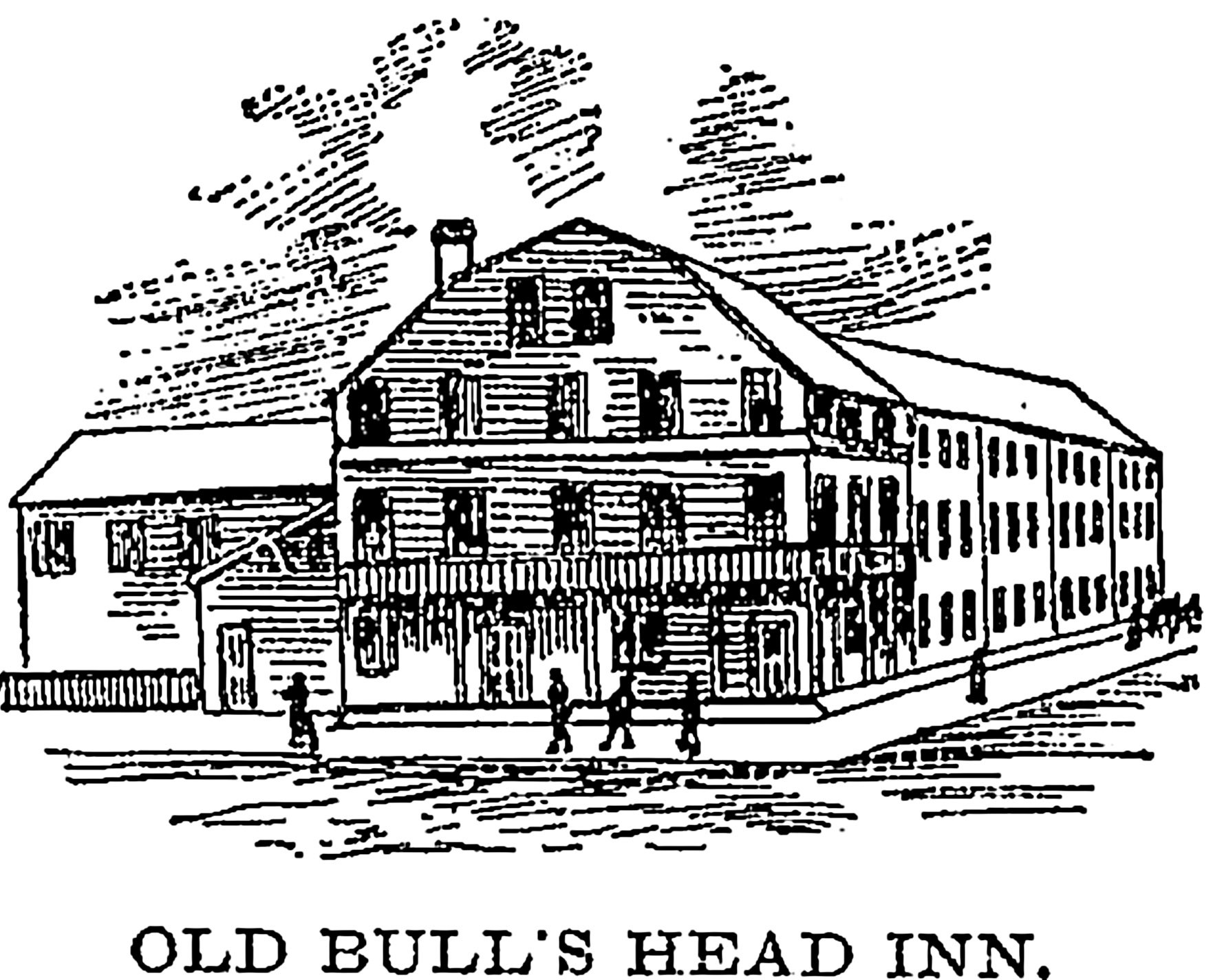The Philipsburg Mail, Thursday, June 13, 1895, Page 7.
Famous Old Inn
Bull's Head Tavern a New York Landmark
Has Stood on the Present Site Since 1815—Its Massive Iron Safe—Foundation of Daniel Drew's Wealth—An Old Ad.
The Old Bull's Head hotel or tavern, where Daniel Drew laid the foundation for his great wealth, and which since its erection has been a famous congregating place for horsemen, still stands as a monument to old New York, at the corner of Third avenue and Twenty-Fourth Street. Although the building, as it now stands, has been modernized with the exception of some of the upper part, it has lost none of its attractiveness for the old residents who remember it when it stood in the middle of the fields, and was reached by stages from the central part of the city which was way down town. As far as is known the old place was built in 1825, and managed by Thomas Smith for Daniel Drew. The property was swept by fire in 1841, and one of the things not destroyed at the fire was the famous old iron safe which Drew had built in one of the walls to keep his money from midnight prowlers. This safe still stands in an office on the ground floor, and, could it speak, would be able to tell pocket-aching stories of the fabulous sums it safely kept from prying hands and eyes during its career. At the time Drew purchased the safe banks were unknown in that part of the city, and people who used to come in from the surrounding country to spend a few days invariably deposited their valuables and money behind its massive doors. Naturally the fame of the safe, each side of which is capable of holding two men standing upright between the doors and the inner partitions, spread far and wide, and in consequence was the means of bringing a steady and substantial trade to the house. As much as $50,000 has been locked in it in a single night.
In the old days turfmen who had any kind of business at all to transact in the city used to make the Bull's Head tavern their headquarters, and some remarkable transactions in horseflesh have been made before the bar.
The favorite sport among the lovers of speedy animals, when a number of them got together at night, was swapping horses. The owners would go to the stables and trot out their animals, marching them right in the bar room. When the swapping began to get exciting it was nothing unusual to see several

animals on the floor at one time. Old “Rufe” Conklin was one of the frequent patrons of the place, and nothing delighted him more than to indulge in his favorite pastime of “crack-a-loo.” The game consisted of throwing a penny into the air, and the spectators making bets as to which crack it would fall nearest to. This sport was particularly fascinating to old “Rufe,” who wagered sometimes as high as $100 at a time on the result of the fall of the coin. Drovers also used to make the old place their headquarters for the exhibition and sale of cattle, special accommodations having been provided for them, as well as for horses.
After the fire in 1841 the place was purchased by Pierre Lorillard, and is still owned by his family. In 1869 George Metcalf became the manager of the hotel, and three years later he turned it over to Blaine & Bristol. Alfred Abrams had it later, and in 1880 he sold it to Charles Wendelken, who modernized the building. John C. Scheuplein is the present proprietor.
About the earliest history of the Bull's Head tavern is found in the following advertisement that appeared in the New York Spectator Tuesday, May 8, 1825:
“The subscriber informs his friends and the public, and particularly the drovers of this and the adjoining states, that this establishment will be opened for their accommodation on the first day of May next, when he hopes to receive, and by his superior accommodations and unremitted attention to de serve their patronage.
“The house is large and commodious, and the yards, having been laid out according to a plan furnished by the drovers, are well adapted to the exhibition and sale of cattle, and will be kept clean.
“The stables are large and airy and particularly arranged for the accommodation of fine horses that may be brought to the city for sale.
“To travellers who may choose to put up at his house, the subscriber can offer all the luxuries which the city affords, with many comforts not to be obtained there, while their horses will receive the attention of sober and honest grooms and provender of the first quality on respectable terms.
“Although but a short distance from the city, for the accommodation of persons who may resort to the house, there will be stages running regularly, early and late, to a central part of the city.
“Thomas Swift.”
Famous Old Inn, The Philipsburg Mail, Granite City, Montana, Thursday, June 13, 1895, Page 7. (PDF)
See Also: At the Old Bull's Head, Scribner's Magazine, Vol. XVII, No. 3, January 1897.